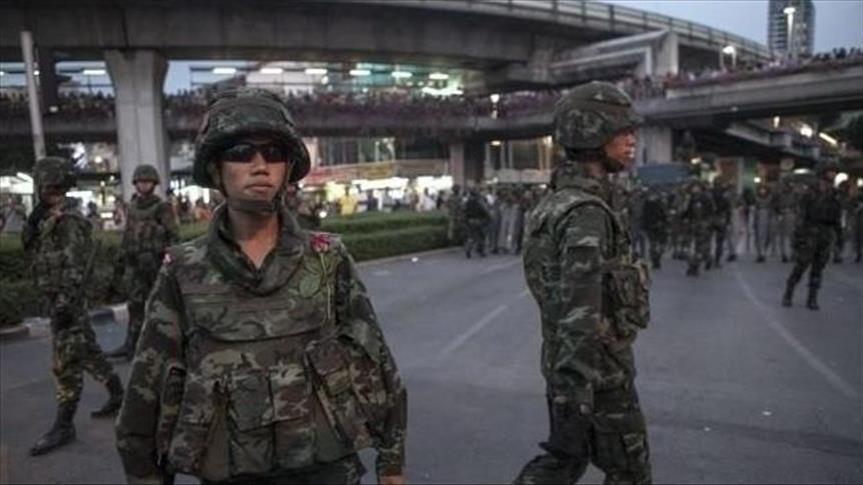Thai junta to reeducate opponents in camps
Military regime to introduce reeducation programmes in which those with negative view of regime will be placed

Banghok
By Max Constant
BANGKOK
In an echo of dictatorial regimes from Asia's past, Thailand's junta is to introduce re-education camps for those who continue to criticize its policies, with those interned subjected to junta "understanding" for up to one month.
Local media on Wednesday reported junta chief-cum-Prime Minister Prayuth Chan-ocha as saying that critics of the regime had so far failed to grasp the goverment's take on Thailand.
“In the past, critics were summoned to come and undergo ‘understanding’ but when they went back their behaviour was unchanged” the 62-year-old military general told the Bangkok Post.
“So we need to have a course to train and educate them about ethics and morality as well as good governance, so they will no longer criticize the government."
He added that the reeducation programmes -- in which two outspoken politicians have already been detained for several days for negative comments about the regime -- could take from a few days to a full month.
After the end of the conflict between United States forces and the Vietnamese communist army in 1975, re-education camps became common under the new communist governments in Vietnam and Laos.
They were set up to erase "capitalist and liberal ideas" from the brains of former cadres of the previous pro-U.S. regimes and to instil them with communist ideology.
The camps were maintained until the late 1980s. Of those who survived, almost no one had converted to the new Marxist belief system.
On Tuesday, Deputy Prime Minister Gen. Prawit Wongsuwan, the de facto number two in the National Council for Peace and Order (NCPO) -- aka the junta, threw his voice behind the plan.
The 70-year-old said that the previous “attitude adjustment sessions” – as was called the temporary detention of the regime’s critics in military camps – had been not successful “because those who underwent the session still expressed their thoughts once released”.
Army chief Theerachai Nakwanich underlined that “troublesome elements” must be dealt with.
“They should be detained for a long time if they are found to be difficult to bargain with,” he said.
The announcement came on the back of the detainment of two junta opponents from the Puea Thai party -- the political vehicle of former prime ministers Thaksin Shinawatra and his sister, Yingluck -- for public comments and Facebook postings criticizing the junta.
Both of the Shinawatra governments were overthrown in coups, in 2006 and 2014 respectively.
Former MP Worachai Hema was released Tuesday after three days of “attitude adjustment” – a junta expression for coercive discussions with political dissenters in order to force them not to publicly express their opinions -- while another Puea Thai politician, former social affairs minister Watana Muangsook, was arrested Sunday and is still being detained.
Hema had called for Chan-ocha to resign if a draft charter of the constitution -- written by a military-appointed committee of legal experts and given Tuesday to the government -- did not pass a popular referendum on Aug. 7.
Muangsook, meanwhile, had strongly criticized the military detention of Hema on his Facebook page.
It was the second such session for Muangsook, who was also held earlier this month.
On Tuesday, Chan-ocha underlined his reasons.
“Everyone must understand that the law is the law."
Hundreds of Thais have been hauled in for attitude adjustment at military camps since Chan-ocha's 2014 coup.
On Tuesday, the junta also gave soldiers new powers of arrest and detention.
"Military officers will take part in activities that are for community safety because there are not enough police officers to tackle crime," the premier said.
Anadolu Agency website contains only a portion of the news stories offered to subscribers in the AA News Broadcasting System (HAS), and in summarized form. Please contact us for subscription options.





